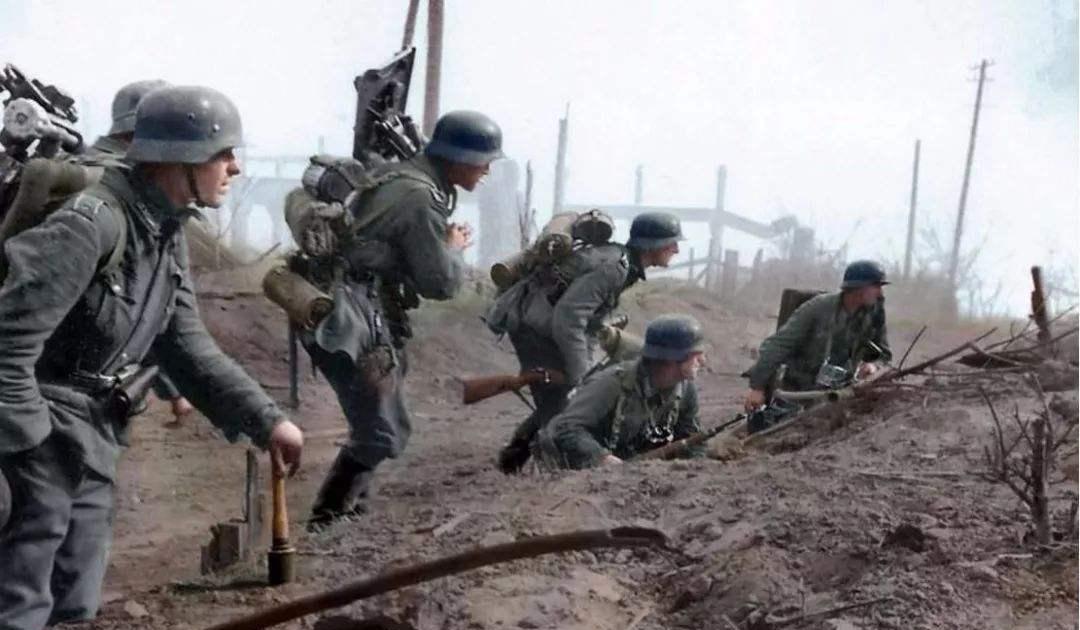According to the "Typhoon" battle plan formulated by the German High Command, the German 2nd Panzer Army focused on attacking the direction of Bryansk, and the 3rd and 4th Panzer Armies focused on the direction of Vyazma. Despite stubborn Soviet resistance, the German 2nd Panzer Army broke through the soviet 50th Army and occupied Bryansk in late September 1941. After the capture of Oryol on 3 October, the Germans advanced along the Oryol-Tula road.

On 13 October, most of the Soviet army in the direction of Vyazma was annihilated, and only a small part broke through the siege. The Germans captured a total of 580,000 Soviet officers and men in the Battle of Vyazma-Bryansk. Because Hitler insisted that the German Army Group Center attack Leningrad and Ukraine after occupying Smolensk, the German army only concentrated its forces on September 30, 1941, focusing on Moscow, which bought valuable time for the Soviet army to consolidate the defense line in the Moscow area.
Zhukov, as commander-in-chief of the Moscow Campaign, immediately established a new defensive line on the outskirts of Moscow, mobilized 14 infantry divisions, 16 tank brigades and more than 40 artillery regiments, and quickly rebuilt the four armies of the 5th, 16th, 43rd and 49th, but with a total strength of only more than 90,000 troops. A number of generals with rich combat experience, such as Rokossovsky, Lelyshenko, and Yeferemov, were transferred to the Moscow region. In three days, the citizens of Moscow organized 600,000 people to build three fortifications around the city of Moscow.
From mid-October to early November 1941, the Soviets and Germans fought fierce battles in the Mozhaysk region, and although the German forces had the advantage, they were still stubbornly blocked by the Soviet army in the Rama River, Ruza River, Nara River and other areas. On 13 November, 51 divisions of the German Army Group Center launched an offensive. Krueger's 4th Army served as a frontal attack, With Hort's 3rd Panzer Army and Hopner's 4th Panzer Army encircling Moscow from north and west, and Guderian's 2nd Panzer Army encircling Moscow from the south.
Due to the stubborn defenses of the Soviets, as well as the implementation of several counter-assault operations, the Germans were stopped outside moscow. From November 16 to December 5, 1941 alone, german casualties in the Moscow area exceeded 150,000, as well as a large number of tanks, artillery, and combat aircraft. In the Battle of Moscow, the Germans were ultimately defeated, losing more than 500,000 people, more than 1,300 tanks, 2,500 artillery pieces, and more than 15,000 vehicles. After the Battle of Moscow, Hort commanded the 4th Panzer Army, participated in Operation Blue and the Battle of Stalingrad, and each time had a good record, and Hort also became the most feared German panzer general in the Soviet Army.
Kleist once said that if Hitler did not let Hort's 4th Panzer Army move south, the Germans could completely occupy Stalingrad, and the whole situation of the war would change significantly. After the defeat at the Battle of Stalingrad, Hort commanded the 4th Panzer Army to successfully hold Rostov during the winter operations of late 1942-early 1943, covering the retreat of 500,000 German troops from the Caucasus. Hort's 4th Panzer Army, in coordination with the Second SS Panzer Army, repelled the Soviet Southwestern Front and Bryansk Front, and won the Kharkov counterattack.
Manstein only needed to tell Hort the objectives and restrictions of the attack, and provide Holt with enough soldiers, ammunition and equipment, and Holt could successfully complete the mission, and Manstein admired Hort's military command skills. Due to insufficient troops and logistics, Holt was unable to defend Kiev during the Defensive Campaign of Kiev in October 1943, and he was dismissed from all his duties by Hitler as a "scapegoat" and forced to retire.